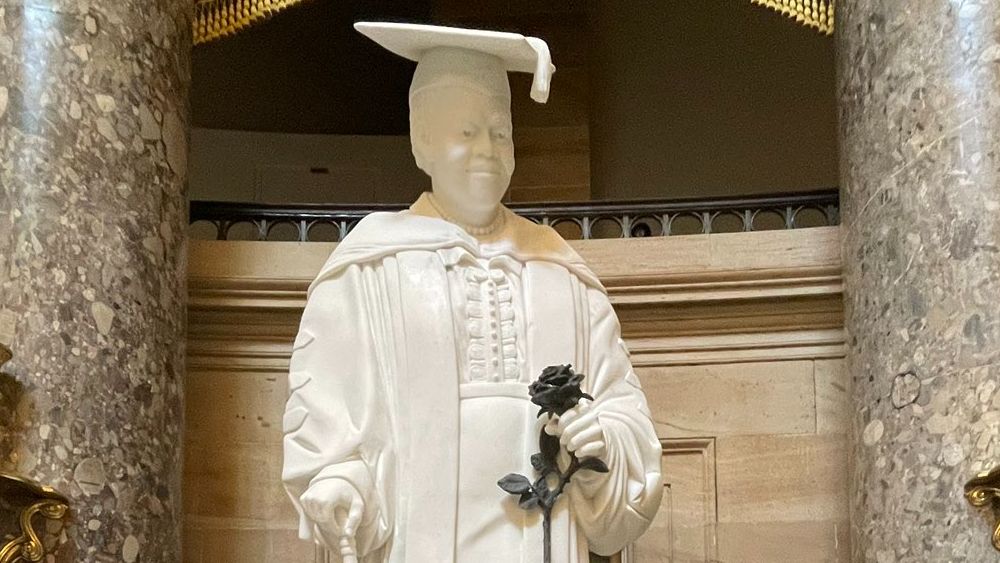DAYTONA BEACH, Fla. — In her bedroom, next to clothes, shoes, and jewelry laid out as though she might come through the door any minute, hangs a reminder of Mary McLeod Bethune’s humble beginnings.
What You Need To Know
- A marble statue of Mary McLeod Bethune was unveiled Wednesday at National Statuary Hall in the U.S. Capitol
- Bethune is the first Black American to be immortalized in National Statuary Hall
- She started a school for young black girls, was elected president of National Association of Colored Women’s Clubs and later started her own organization, the National Council of Negro Women, which still exists today
That’s a testament to Dr. Tasha Lucas Youmans, dean of libraries at Bethune-Cookman University, who oversees the Florida icon’s perfectly preserved home on the B-CU campus as though she were still alive today.
“This home is exactly as it was the day that she passed away in 1955,” said Youmans, standing in Bethune's living room.
Bethune was born to former slaves in Maysville, South Carolina in 1875 and was the 15th of 17 children. Historians claim she had an early interest in education and had decided by the age of 10 to become a teacher. By 1904, she found her way to Daytona Beach, where she founded the Daytona Education & Industrial Training School for Negro Girls. Its name was changed the following year.
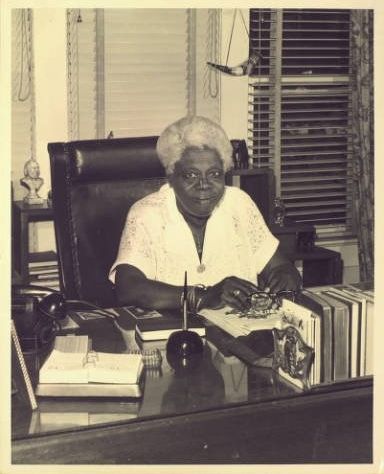
“She founded the school with $1.50, a faith in God, and five little girls. So for us, it’s the manifestation of her faith that really has sustained this school and sustained her legacy,” Youmans said.
As the school grew, so did Bethune’s desire to help those around her, especially women.
“In 1920, when the 19th Amendment passed and women were allowed to vote, she played a very critical role, especially, in the local area, helping women to vote," Youmans said. "During that time, there was a poll tax imposed, and she went door to door on a bicycle to make sure that she raised money to help women pay for those poll tax fees. In addition, for women who could not read, she provided literacy classes for them at night.”
Bethune was soon elected president of National Association of Colored Women’s Clubs and later started her own organization, the National Council of Negro Women, which still exists today.
“They did a lot with the women’s suffrage movement,” Youmans said. “She was an adviser to four presidents, and so she was able to make a lot of great influence on a lot of those organizations with those particular roles that she had in those presidencies.”
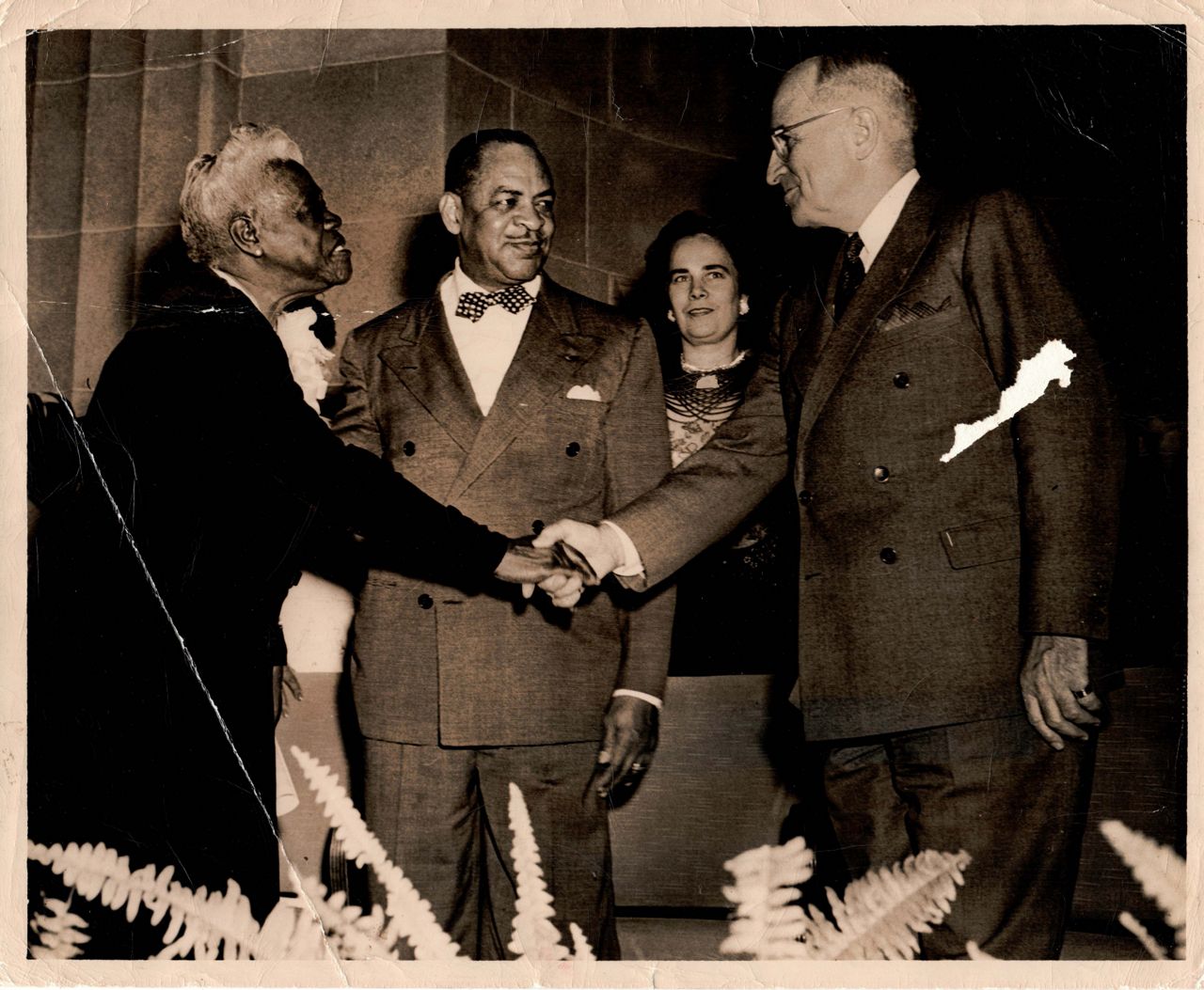
As an adviser to President Franklin Roosevelt, Bethune was the only female member of his “Black Cabinet.”
Historians also say Bethune played a pivotal role in integrating the armed forces and bringing in women.
“She didn’t see obstacles, she saw opportunities in everything that she did,” Youmans said.
Over this time, Bethune formed a deep friendship with first lady Eleanor Roosevelt.
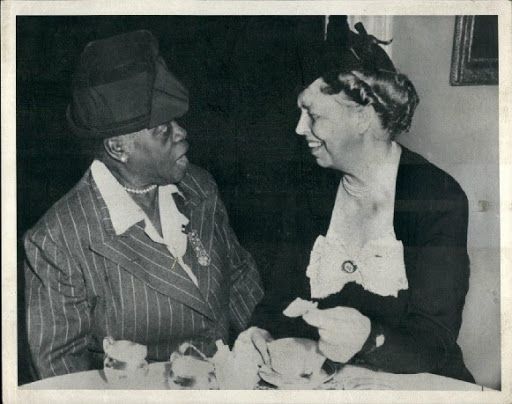
Roosevelt came to stay in her Daytona Beach home, which even today displays reminders of their bond.
“This is my favorite item from this room, because it really shows an unlikely friendship,” Youmans said, picking up a magazine. “This is the cover of Ebony magazine in February 1953, and as you can see, the caption says, “Some of my Best Friends are Negroes” by Eleanor Roosevelt. So it was a commentary that she did for this Black publication.
“These were probably the two most powerful women in the United States during that time, and to know that they were on a united front was very significant.”
One of Bethune’s grandchildren, Patricia Bethune Pettus, was able to witness that friendship as a child for herself. Having grown up in the home, she said it’s meaningful to see her grandmother’s accomplishments so well preserved.
“It is a blessing, it's an honor to still have her history alive,” Bethune Pettus said.
But she knows her grandmother’s legacy extends much farther than the four walls of the home.
“She would be very pleased, very humbled, very happy to see where her dream has expanded and has grown,” Bethune Pettus said.
Bethune now rests just outside her home, at the university she founded, while her dream lives on — one that allowed many others after her to dream even bigger.
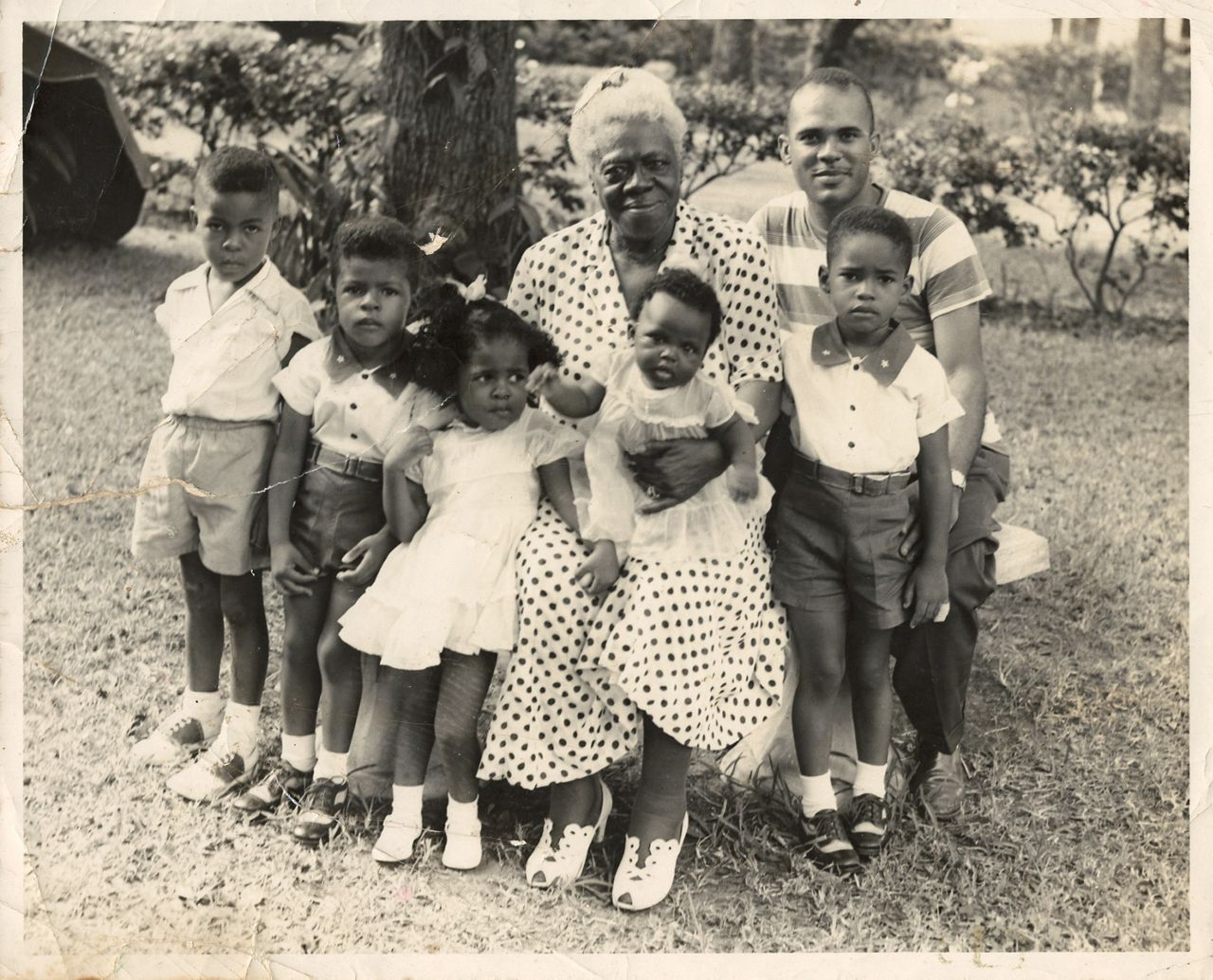
“I think all women should be grateful for what she did, because she started a path for us to follow," Youmans said. “When you look at the work of Kamala Harris and Stacey Abrams, I think if it were not for Mary McLeod Bethune, we would not see those women, those women of significance today, having the roles that they have.”
A statue of Bethune was unveiled Wednesday in National Statuary Hall at the U.S. Capitol, making her the first African American woman to be represented there.



